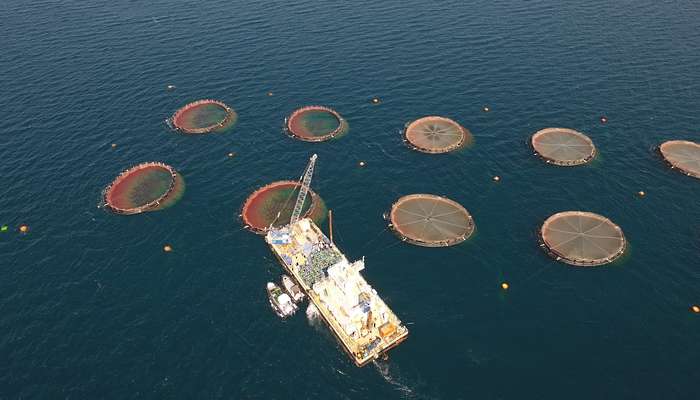
Muscat: The work of the "Food Security Lab 2024" to enhance food security and develop a package of investment opportunities related to local added value continues in Muscat.
Dr. Masoud bin Suleiman Al Azri, Director General of Agricultural and Fisheries Marketing and Official Spokesperson at the Ministry of Agriculture, Fisheries and Water Resources, said: "By the end of the lab's work, 30 projects with an investment value exceeding OMR10 million will be signed."
He added that these projects are related to a number of strategic crops in which self-sufficiency rates are low, such as onions, garlic, potatoes, fish farming, fish markets and projects in the water resources sector with the aim of raising self-sufficiency, reducing the import bill, increasing the value of exports and creating job opportunities for Omanis.
He pointed out that the food security laboratories that were launched in 2021, focus on attracting investment and enhancing local content, added local value, employment and food security sector enablers, explaining that during the fourth laboratory, two pillars were added.
The strategic planning and digital transformation; as the ministry assigned the digital transformation project in the first quarter of this year to the "Idhkaa" group with the aim of digitising all services provided by the ministry to the public or internal services. 248 services will be converted digitally, he said expressing his hope that this project will be completed by the end of 2025.
He stressed that at the conclusion of the laboratory's work, 10 services will be launched on the "Tharawat" platform, which will be comprehensive for all services provided by the Ministry of Agriculture, Fisheries and Water Resources.
Regarding the investment project that the ministry is working on to achieve the goals of "Oman Vision 2040", Dr. Masoud bin Suleiman Al Azri explained that the project has reached advanced stages and includes more than 130 existing projects in various governorates of the Sultanate of Oman, some of which have begun trial or commercial operation, while others are underway, noting that according to feasibility studies, the investment value of these projects exceeds one OMR1billion.
He stated that among the projects that have begun production are wheat projects, as the Sultanate of Oman's production of this strategic crop has increased from 2,000 tonnes in 2022 to more than 10,000 tonnes so far, expressing his hope that these areas will increase with government support for this important crop and encouraging and motivating farmers by providing many advantages and incentives.
He said: "The Ministry has allocated agricultural areas for a number of crops such as mango, lemon and others, and work is underway on advisory studies for a number of agricultural cities proposed by the Ministry of Housing and Urban Planning in cooperation with the Ministry in the Wilayat of Saham and in the Najd Agricultural Region."
There is also an advisory study being conducted by the Food Investment Holding Company "Nataaj" for an agricultural industrial city in the Najd Agricultural Region in cooperation with the Ministry.
The Ministry of Economy, represented by the "Diversification" Programme, is working in cooperation with the Ministry on the economic clusters project in the Najd Agricultural Region with the aim of enhancing food security, raising self-sufficiency rates and reducing the import bill.
He added that there are some crops in which the Sultanate of Oman has achieved a good self-sufficiency rate of more than 75 percent, and there is a large abundance of fish reaching 158 percent, dates 97 percent, tomatoes 83 percent, milk 92 percent, and others, so the focus is on value-added industries, expecting that by the end of this five-year plan 2025, good rates of self-sufficiency will be achieved.
The Director General of Agricultural and Fisheries Marketing and the official spokesperson for the Ministry of Agriculture, Fisheries and Water Resources pointed out that the Sultanate of Oman currently imports 40 percent of its food, and there are good self-sufficiency rates in a number of agricultural crops and some products such as eggs and white meat, expressing his hope to reach high self-sufficiency rates when the Al Namaa Poultry Project is operational.
Organised by the Ministry of Agriculture, Fisheries and Water Resources in cooperation with the Oman Vision 2040 Implementation Follow-up Unit, the National Investment and Export Development Programme "Nazdar", the National Employment Programme and private sector companies, the meetings will conclude by next Thursday.